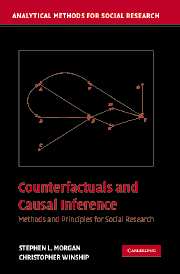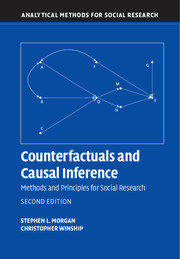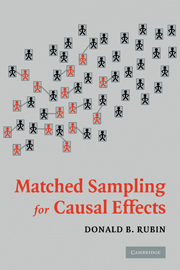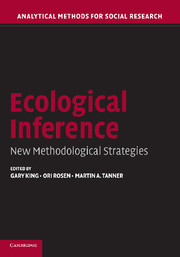Counterfactuals and Causal Inference
Did mandatory busing programs in the 1970s increase the school achievement of disadvantaged minority youth? Does obtaining a college degree increase an individual's labor market earnings? Did the use of the butterfly ballot in some Florida counties in the 2000 presidential election cost Al Gore votes? If so, was the number of miscast votes sufficiently large to have altered the election outcome? At their core, these types of questions are simple cause-and-effect questions. Simple cause-and-effect questions are the motivation for much empirical work in the social sciences. This book presents a model and set of methods for causal effect estimation that social scientists can use to address causal questions such as these. The essential features of the counterfactual model of causality for observational data analysis are presented with examples from sociology, political science, and economics.
- Causal inference from a counterfactual perspective
- Techniques for the estimation of causal effects
- Examples from sociology, political science, and economics
Product details
December 2007Adobe eBook Reader
9780511346354
0 pages
0kg
30 tables
This ISBN is for an eBook version which is distributed on our behalf by a third party.
Table of Contents
- Part I. Counterfactual Causality and Empirical Research in the Social Sciences:
- 1. Introduction
- 2. The counterfactual model
- Part II. Estimating Causal Effects by Conditioning:
- 3. Causal graphs, identification, and models of causal exposure
- 4. Matching estimators of causal effects
- 5. Regression estimators of causal effects
- Part III. Estimating Causal Effects When Simple Conditioning Is Ineffective:
- 6. Identification in the absence of a complete model of causal exposure
- 7. Natural experiments and instrumental variables
- 8. Mechanisms and causal explanation
- 9. Repeated observations and the estimation of causal effects
- Part IV. Conclusions:
- 10. Counterfactual causality and future empirical research in the social sciences.









